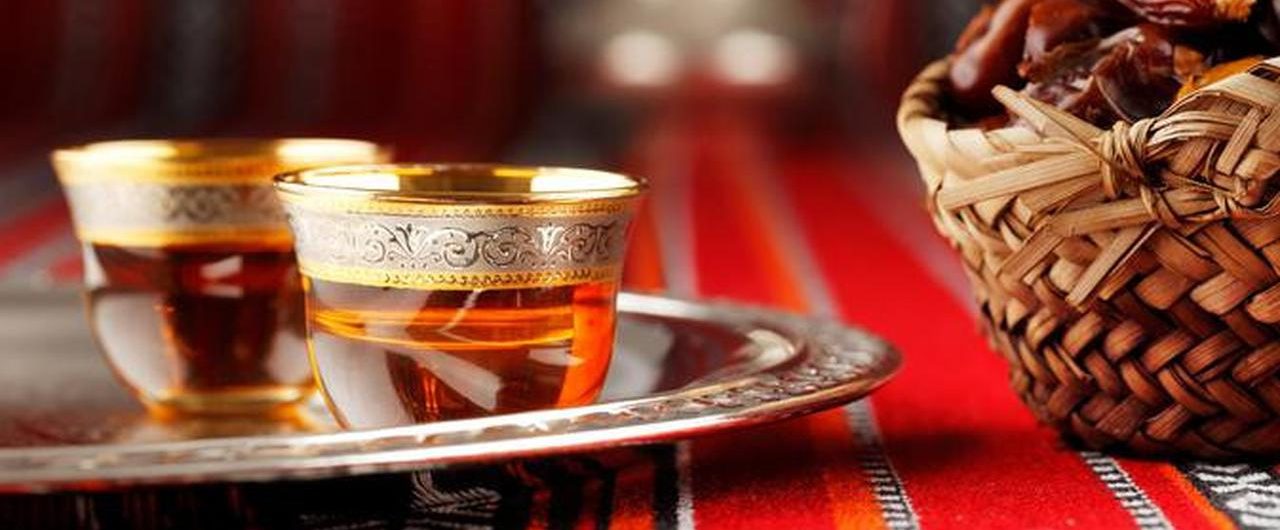Arabic Coffee, or Gahwa as they are colloquially called, is the favorite recreational drink of the Arabs. Though Arabic Coffee also encompasses Turkish Coffee, Gahwa is made explicitly according to Arab traditions. The Gahwa has been popular in the Arabian peninsula for hundreds of years.
The names vary further with dialects. In Egypt, it is pronounced ‘aweh, changing the ‘QA‘ to a glottal stop. In some Arab-speaking countries, it is Gahweh.
Usually, Gahwa is brewed from Arabica coffee beans, accounting for 80 percent of the world’s coffee production.
History of Arabic Coffee
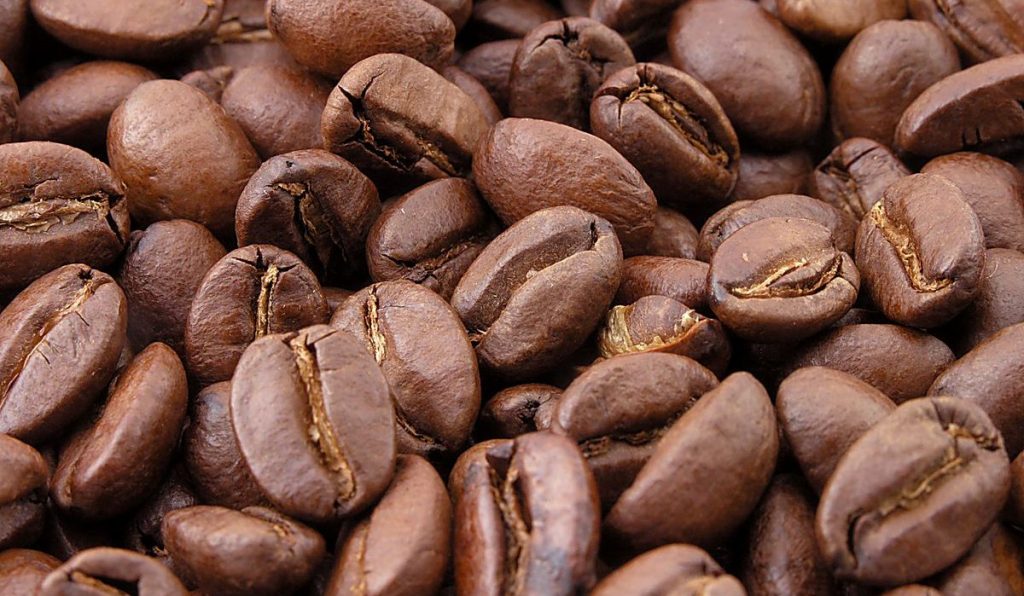
Legends have it that the shepherds of Arabia first discovered Coffee. Their goats, which chewed certain berries, were more active. Later, the Arabs started using these to make energy drinks.
The coffee culture of Arabs predates that of the west by centuries. The English word ‘coffee’ was derived from the ‘Koffie’ in Dutch, from the Turkish ‘kahve,’ which has its roots in the Arabic word Qahwah.
According to UNESCO, Gahwa originated in the Arabian peninsula. Emphasizing the importance of preserving these traditions, UNESCO added the Arabic Coffee and Majlis to its list of Intangible Cultural Heritages in 2015.
How to make Arabic Coffee “Gahweh”?
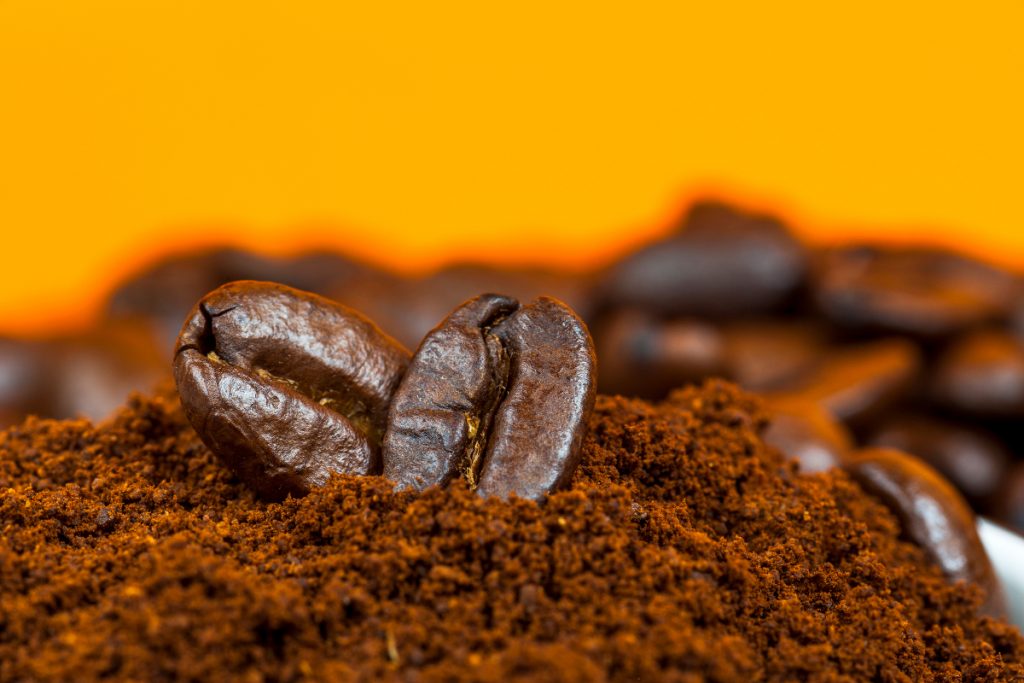
Before starting, you need these things to make Coffee.
- A stove for the fire.
- For the best Arabic Coffee, grinding it fresh is essential. So, get a grinder. Even a mortar and pestle is usable, which means slightly more work.
- A pitcher vessel to brew.
- Traditionally, it is done in small handleless cups.
- Good quality coffee beans.
- Though spices are not necessary, that’s how it is usually made. Depending on your taste, you can add cardamom, cloves, cinnamon, cumin, saffron, etc.
The taste of the Coffee is dictated to a great extent by the roast of the beans, along with its freshness and quality. The degree of roast varies from region to region. It can be light, medium, or dark. In the UAE, Coffee is made with lightly roasted beans.
Because the Coffee is served unfiltered, grinding the beans with fine particles is essential to make them drinkable. So if you are grinding by hand, spend enough time and effort to make them pleasing.
Now that everything is ready, the following is an essential part; the brewing.
1. Prepare the coffee powder and spices
The beans’ quality and the ground’s fineness are essential for a great cup of coffee. Grind the beans to an excellent powder. One serving (about 60 ml) requires a spoonful of coffee powder. Grind the spices to a fine powder and separate them from the coffee powder.
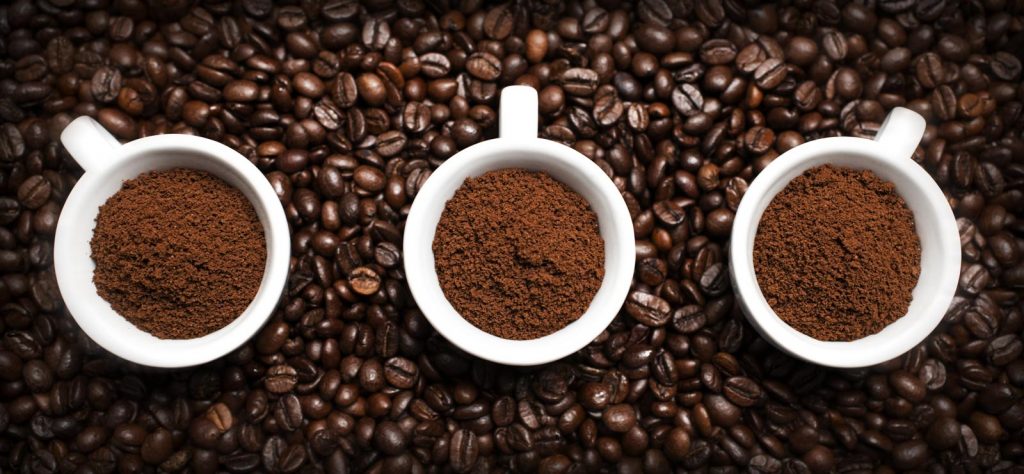
2. Heat the water
Fill water in Dallah and boil it. When the water boils, please remove it from the stove and cool down for about 30 seconds.
3. Add Gahweh
Put the coffee powder in Dallah and heat it again without stirring the contents. Once the water starts boiling again, lower the flame and let it simmer for 10 minutes. Remove the pot from the stove when the foam rises to the top.
4. Add the Spices
Add the ground mixture of spices to Dallah and put it back on the fire. Heat until the foam is formed on top of it.
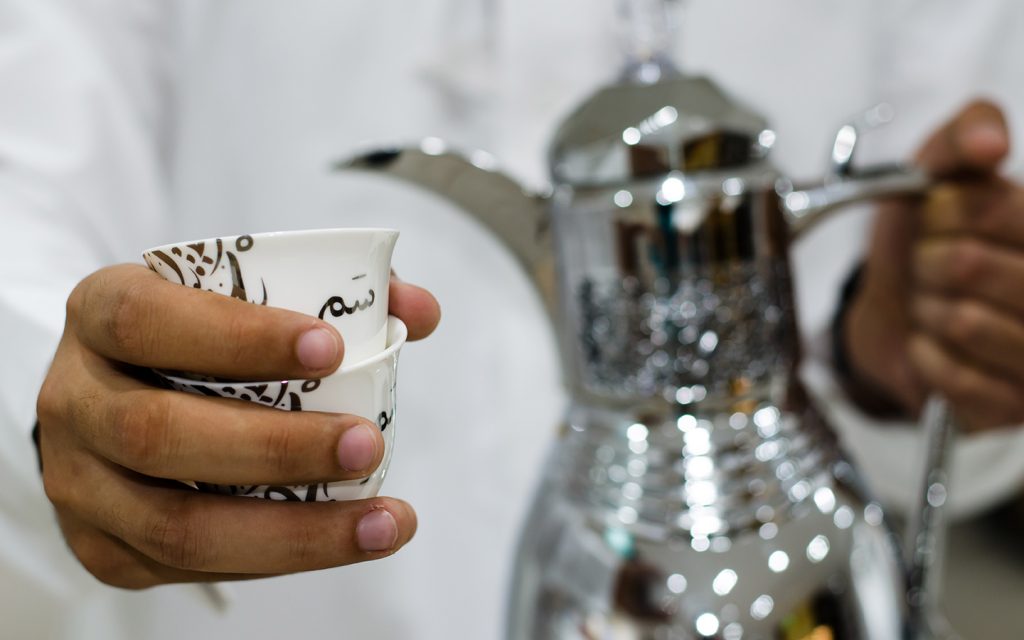
5. Serve the Coffee
Let the Coffee sit still to allow the foam to disappear and the grounds to settle to the bottom of the pot.
Okay, you are ready to serve now. Serve the Coffee to finjan through a filter. Traditionally the Coffee is served without sugar, but there is no harm in lightly sweetening the Coffee if you like so. But milk and cream are a no-no.
The Coffee is cooked after adding sugar and spices rather than later. So don’t forget to specify your preferences before it’s brewed. Also, sip slowly to avoid taking in the grounds with the Coffee.
The right way to serve Gahwa
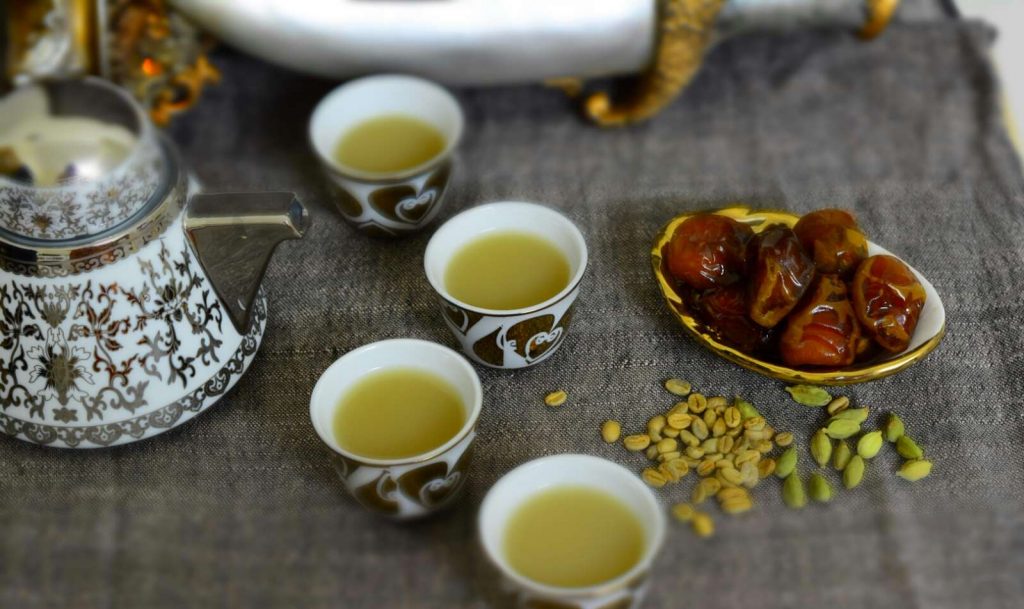
Drinking Coffee in Khaleej is more of a social affair than anything else. Gahwa is an inevitable part of family gatherings, business meetings, and Arabic Majlises. And preparing and serving them is art.
The person serving the Coffee to guests is called Muqahwi. A Muqahwi should be mature and at least 15 years of age so that he won’t spill the Coffee on the guests and interact gracefully with them. He has to hold the coffee pot (Dallah) in his left hand and the Finjaans in the right.
Coffee is served first to the most important person in a Majlis or gathering, like a religious scholar or a Sheikh. Next, the person sitting to his right is served, and so on. When the guest has had enough Coffee, he gently shakes the Finjaan to show the Muqhawi he is done.
In Middle Eastern culture, drinking with the left hand is considered rude. One should use the right hand to receive the Coffee as well. Dates and sweets are often served along with Gahwa.
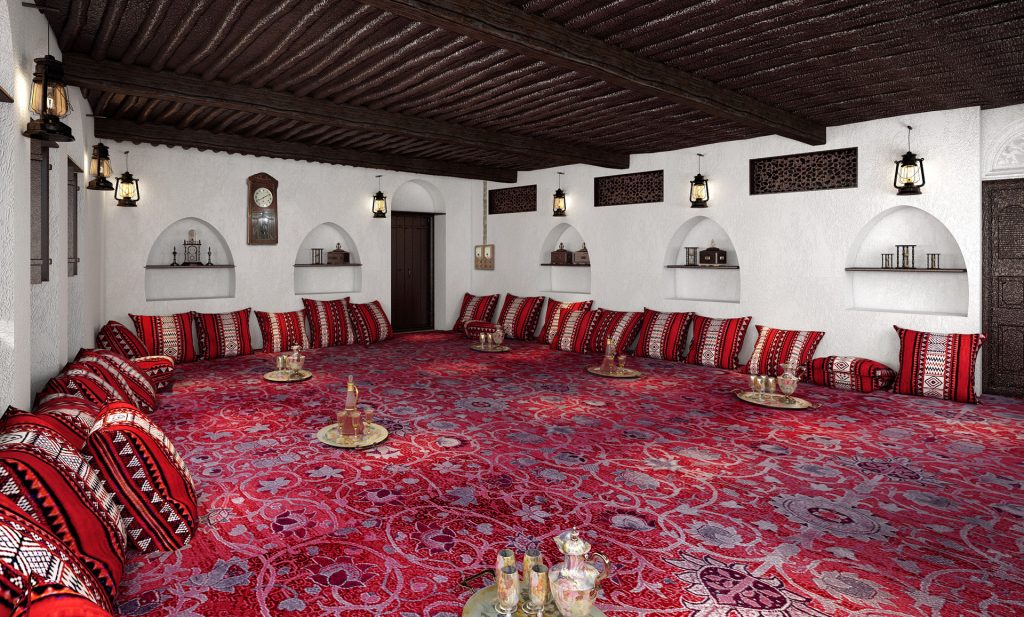
Arabic Majlis
We cannot miss out on Arabic Majlises when talking about Coffee. Gahwa is ubiquitous in every Majlis in the Arab world. Majlis means a council or an assembly. They have been part of Arab customs and a sign of their hospitality for thousands of years. These gatherings are usually headed by tribe chieftains or scholars and are held in large rooms with facilities to make Coffee.
Majlises helped build social ties and were the venues for finding resolutions to problems. Arabs have kept this custom alive to this day. They also served the purpose of educating the young about socializing and leadership. It is customary for those attending the Majlis to wear traditional clothes.
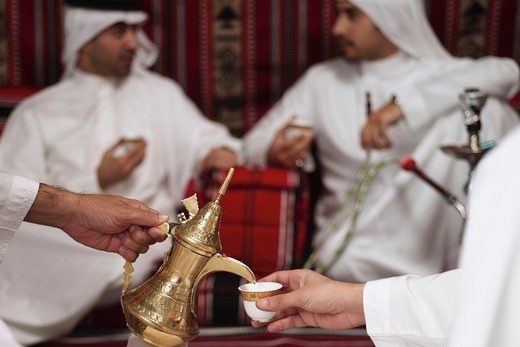
Arabic Coffee Health Benefits
Arabic coffee is served initially without little to no sugar. But depending on one’s taste, sugar can be added. And for that reason, Coffee is usually free of any calories. Moreover, spices carry many health benefits. But because of this, the caffeine content should not be taken in excess.
The more the coffee beans are roasted, the less caffeine content. The variety of spices in Coffee enriches it with antioxidants that prevent infections and diseases.
How is Arabic Coffee different from Turkish Coffee?
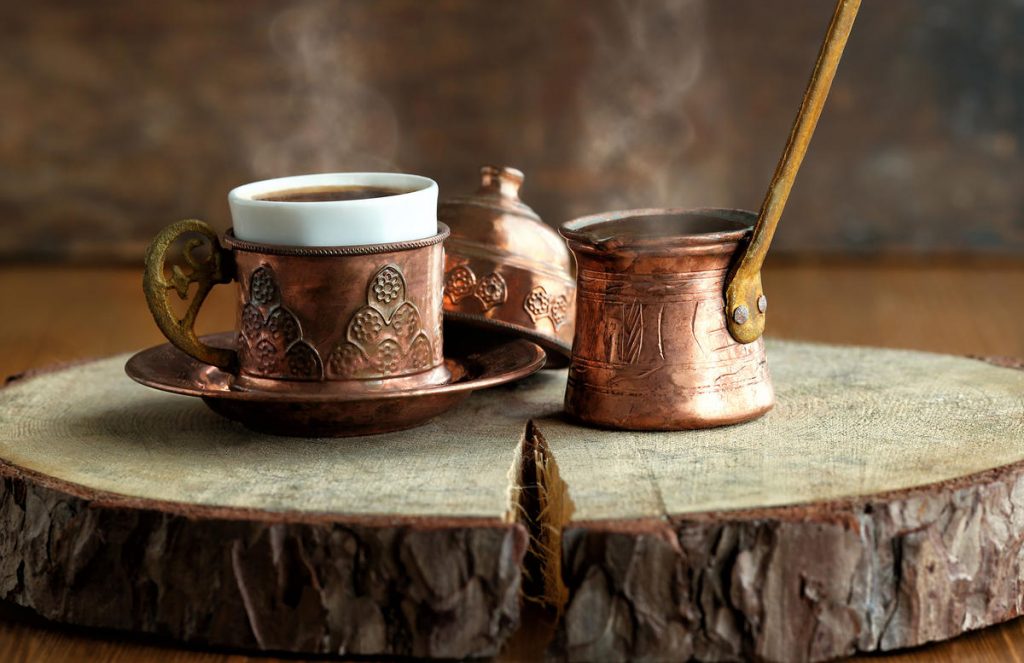
The term Arabic Coffee encompasses Turkish Coffee as well. But Gahwa Arabi is different from Turkish Coffee in some minor ways.
These coffees are served without milk or cream and are prepared with freshly ground beans. Apart from the coffee pots and customs, the significant difference is that cardamom is not used in Turkish Coffee. Arabic Coffee typically contains cardamom along with other spices.
Both Arabic Coffee and Turkish Coffee can be sweetened, made of beans of different origins, and roasted to varying degrees.
Where to find Arabic Coffee
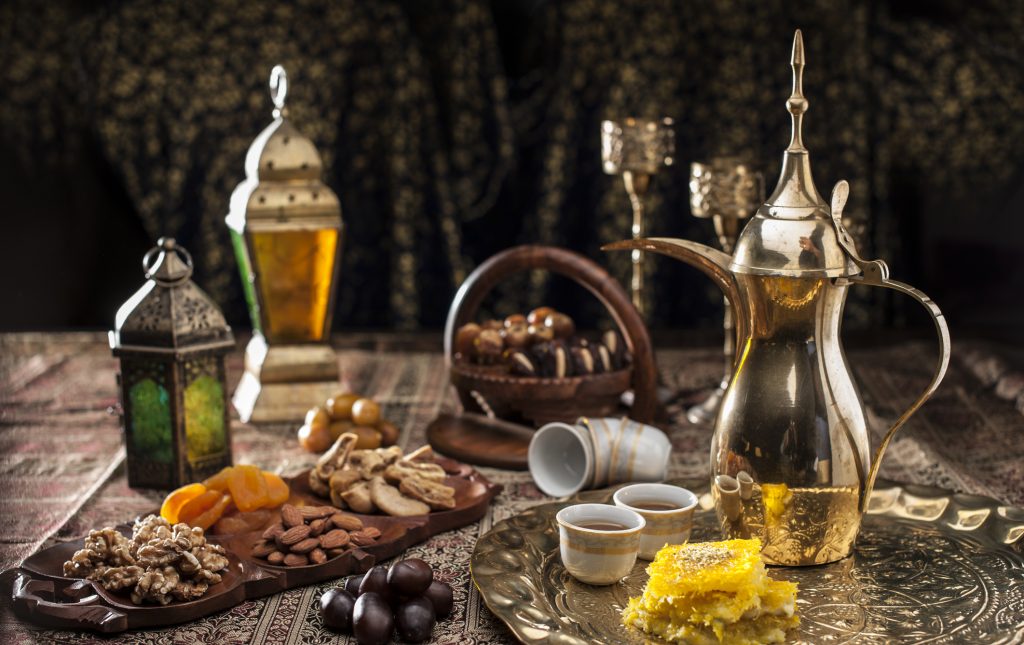
Many restaurants and cafes serve Gahwa. There are even unique places dedicated to the region’s coffee heritage in the UAE. The Coffee Museum in Dubai and Bait Al Gahwa in Abu Dhabi are just two.
Your next best option to enjoy a traditionally prepared Arabic Coffee is to go on a desert safari. Besides the Coffee, they also let you explore the local Bedouin lifestyle and participate in some of the most thrilling activities, Desert Safari Dubai.

